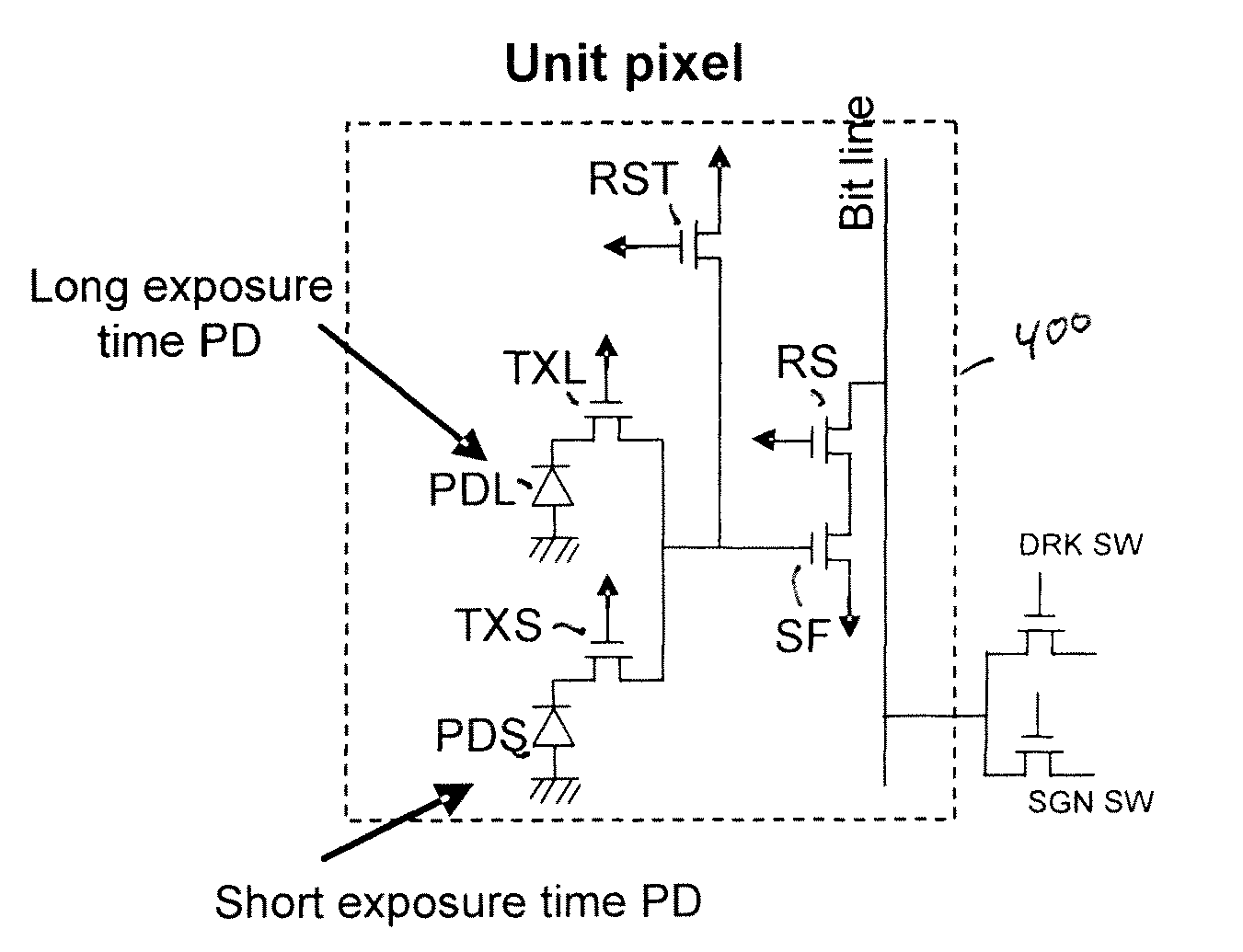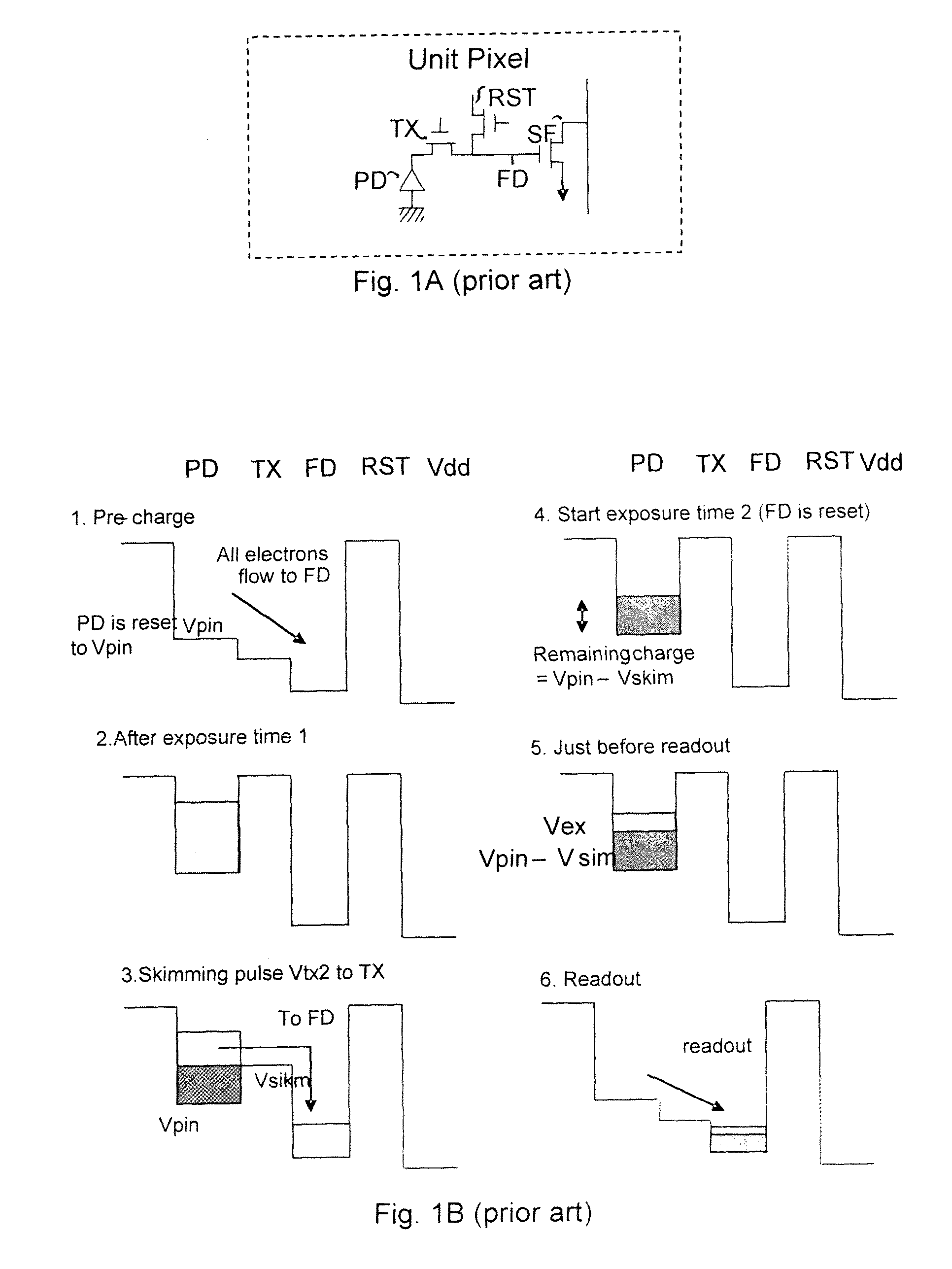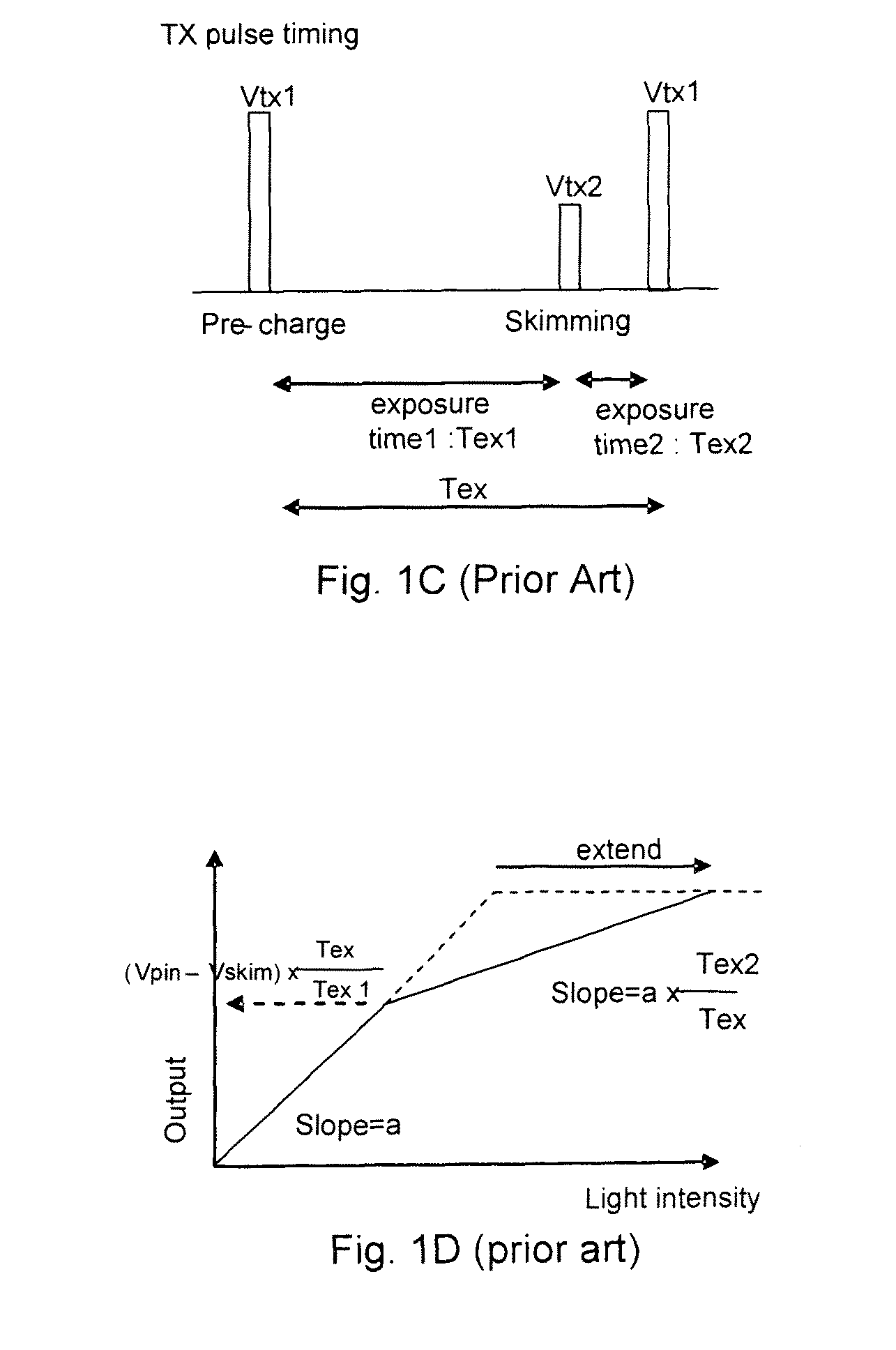High dynamic range sensor with blooming drain
a high-dynamic range, image sensor technology, applied in the direction of instruments, television systems, color signal processing circuits, etc., can solve the problems of image degradation, reduced resolution, and each has significant drawbacks, so as to improve sensitivity and extend the dynamic range of image sensors
- Summary
- Abstract
- Description
- Claims
- Application Information
AI Technical Summary
Benefits of technology
Problems solved by technology
Method used
Image
Examples
Embodiment Construction
[0025]FIG. 2 is a high level block diagram of the an image sensing system 200 in accordance with one embodiment of the present invention. The image sensing system 200 includes a pixel array 205 along with a row driver 245, row decoder 255, column driver 260, column decoder 270, sample / hold block 261, amplifier 262, analog-to-DC block 275, and image processor 280. A timing and control block 250 generate signals for driving the decoders and the row driver. Separate timing signals are generated by the timing and control block 250 to operate one set of photodiodes with a long exposure time and another set of photodiodes with a short exposure time. The outputs from the long exposure time photodiodes and the short exposure time photodiodes are combined by image processor 280 to achieve a high dynamic range. Image processor 280 may, for example, be implemented as a digital signal processor.
[0026]In one embodiment each unit pixel within the pixel array 205 includes at least two photodiodes,...
PUM
 Login to View More
Login to View More Abstract
Description
Claims
Application Information
 Login to View More
Login to View More - R&D
- Intellectual Property
- Life Sciences
- Materials
- Tech Scout
- Unparalleled Data Quality
- Higher Quality Content
- 60% Fewer Hallucinations
Browse by: Latest US Patents, China's latest patents, Technical Efficacy Thesaurus, Application Domain, Technology Topic, Popular Technical Reports.
© 2025 PatSnap. All rights reserved.Legal|Privacy policy|Modern Slavery Act Transparency Statement|Sitemap|About US| Contact US: help@patsnap.com



